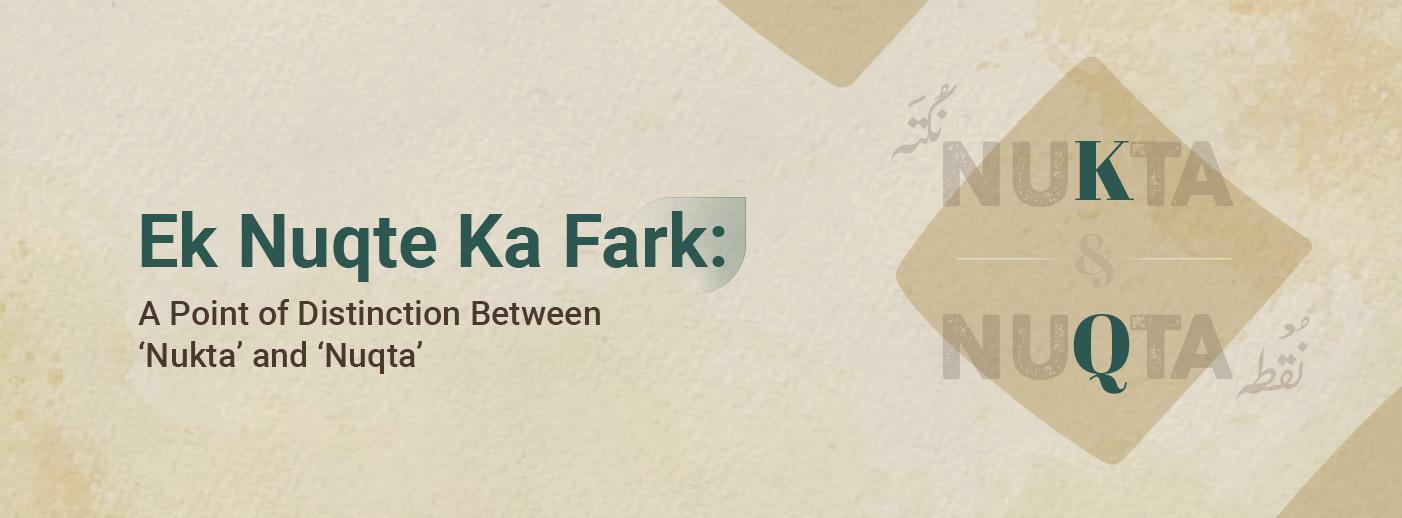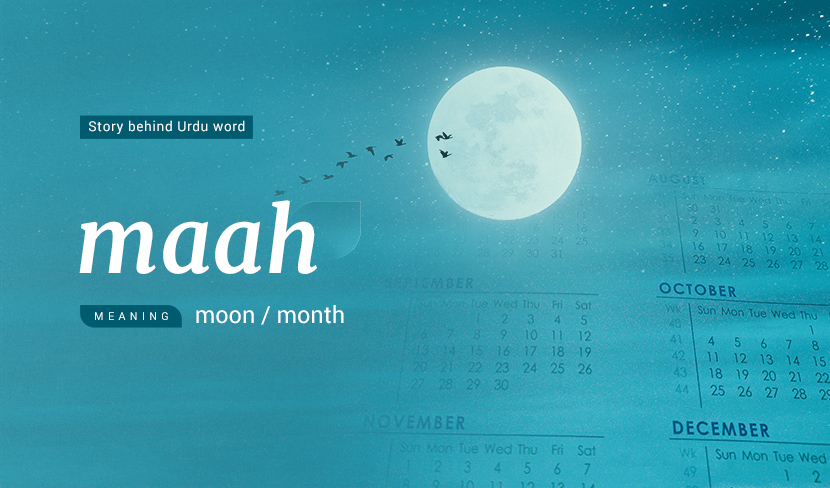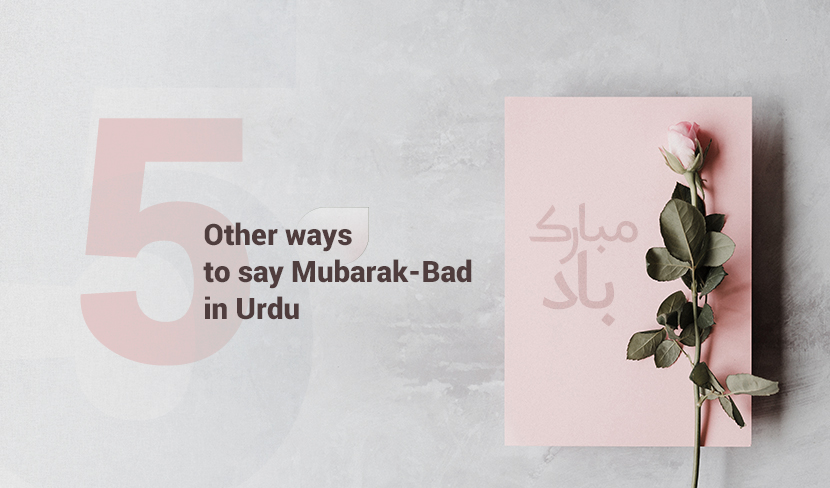Top searched
Saved words
khisyaanii billii khambaa noche
an embarrassed or ashamed person tends to vent his/her feeling by quarrelling
be-niyaaz
without want, free from want, wanting nothing, not in need, able to dispense, independent, carefree
Ek Nuqte Ka Fark: A Point of Distinction Between ‘Nukta’ and ‘Nuqta’

In the intricacies of language, sometimes the tiniest nuances can create profound distinctions. You must’ve come across the phrase ‘ek nuqte ka farq hai’ during a conversation, which roughly means ‘there’s a difference of a dot (and that is a lot!)’
So dear readers, today, we’re set to explore two words that strike a uncanny phonological semblance, but have entirely different meanings - 'nuqta' and 'nukta.' Despite ringing (almost) the same bells, these two words differ from each other by all other means. Coincidently, there is an actual difference of a ‘nuqta’ in both words (you’ll figure out the metaphorical reality by the end of this blog).
The term ‘nuqta’ (نقطہ) originates from Arabic and means centre, point or dot etc. However, the most prominent use of this word is to denote towards the diacritical point used to distinguish alphabets in Arabic and Urdu. The equivalent of the word ‘nuqta’ in Sanskrit and Hindi is ‘bindu’.
This diacritical point is very crucial in the Urdu script, as it differentiates one alphabet from another in various categories. For instance, the alphabet 'ب' pronounced '-b' is way different than 'پ'’-t’, 'ت' ‘-p’, and 'ث' ‘-s’. Notice how each nuqta changes the phonetic and semiotic properties of the alphabets. Similarly, in the alphabets 'ج' ‘-j’, 'چ' ‘-ch’, and 'خ' ‘-kh’, the nuqta creates a phonetic and semiotic distinction.
As mentioned earlier, the phrase ‘ek nuqte ka fark hai’ (there’s a difference of merely one point) is quite common. ‘Ain aur ghain mein sirf nuqte ka fark hota hai’ (there’s only a difference of one point between ain and ghain (Urdu alphabets)’ sheds light on how significant one point can be, and how it can be the point of entire difference between two entities. It just emphasizes on even a point should not be taken lightly.
There is one nuqta in ‘ب’, two in ‘ت’ and three in ‘پ’. Likewise, there are several other alphabets in Arabic and Urdu where nuqta or nuqte is used. These diacritical marks, strategically placed above, below, or in the center, illuminate how a seemingly minor element holds the power to alter the entire essence of a letter.
‘Nukta’ (نكتہ) on the other hand, also originating from Arabic, varies in meaning by a huge margin. At its most straightforward, 'nukta' is the maestro of precise communication. It's that moment in a heated debate where someone drops the mic, making an argumentative point that leaves everyone in awe. In the world of words, 'nukta' is the sharp needle in the haystack, pinpointing an exact spot in an argument or a witty twist in a discussion.
In its mystical signification, 'nukta' isn't content with being just clever banter; it's the guide leading us to mystical treasures.
Phrases like 'nukta kholna' (to unveil a direct concern) and 'nukta paida karna' (to craft something comical or witty, or to point towards something) are commonly used in conversations and debates. So, nukta is not merely about making a point; it's about delivering an expression that leaves a lingering impression.
And for the ‘point’ of difference, you can see for yourself; the '-k' sound in ‘nuqta’ (نقطہ) has a dot, while the one in ‘nukta’ (نكتہ) does not. It's a point without a dot, but it undeniably makes a point. The dot in 'nuqta' makes the '-q' sound, which is more prominent as it is produced by a contact of the tongue on the uvula, whereas the '-k' sound is softer in comparison.
Until our next linguistic voyage, dear readers, keep an eye on those dots – for they might just be the points that make all the difference!
Delete 44 saved words?
Do you really want to delete these records? This process cannot be undone





